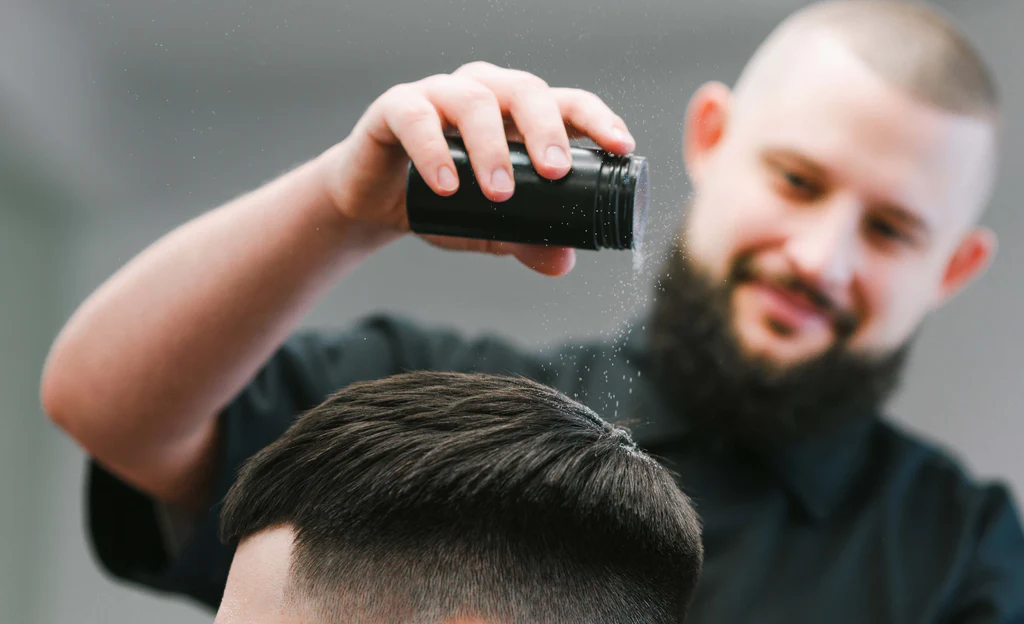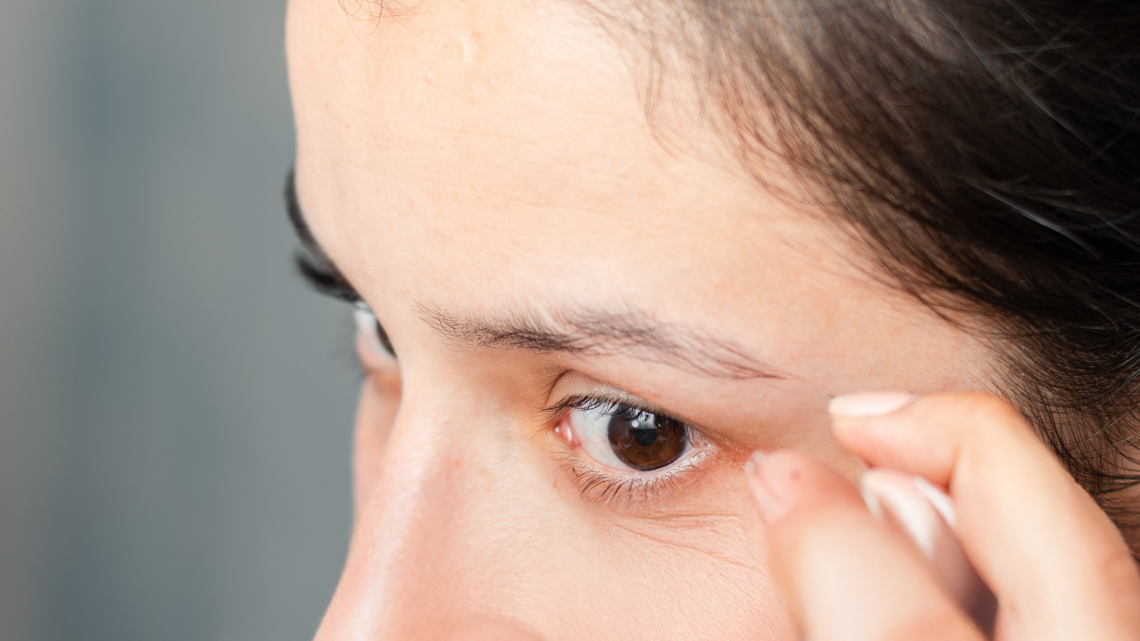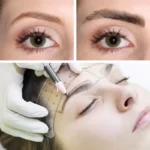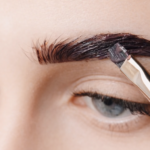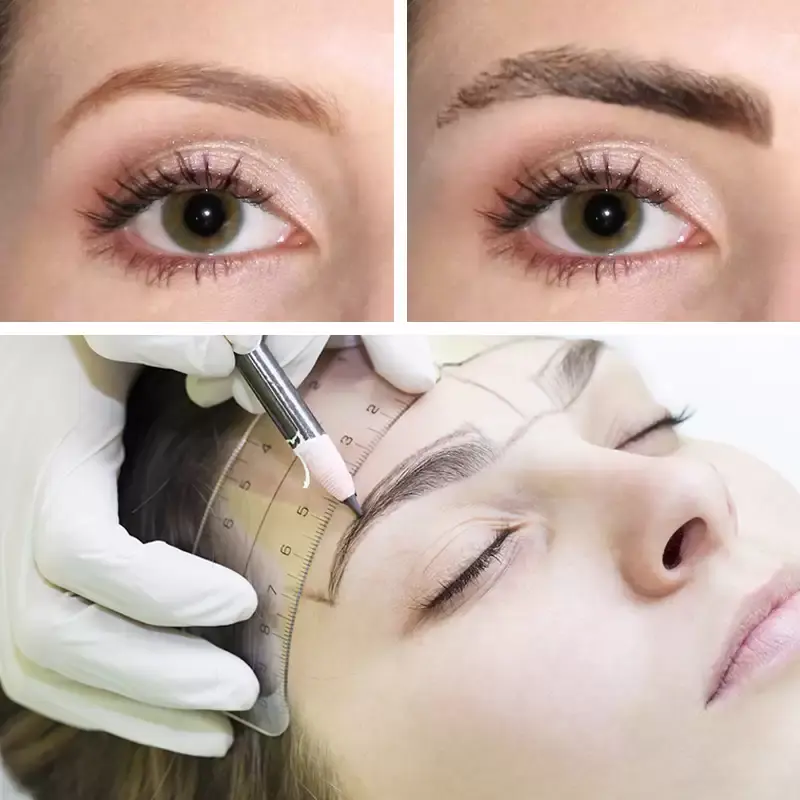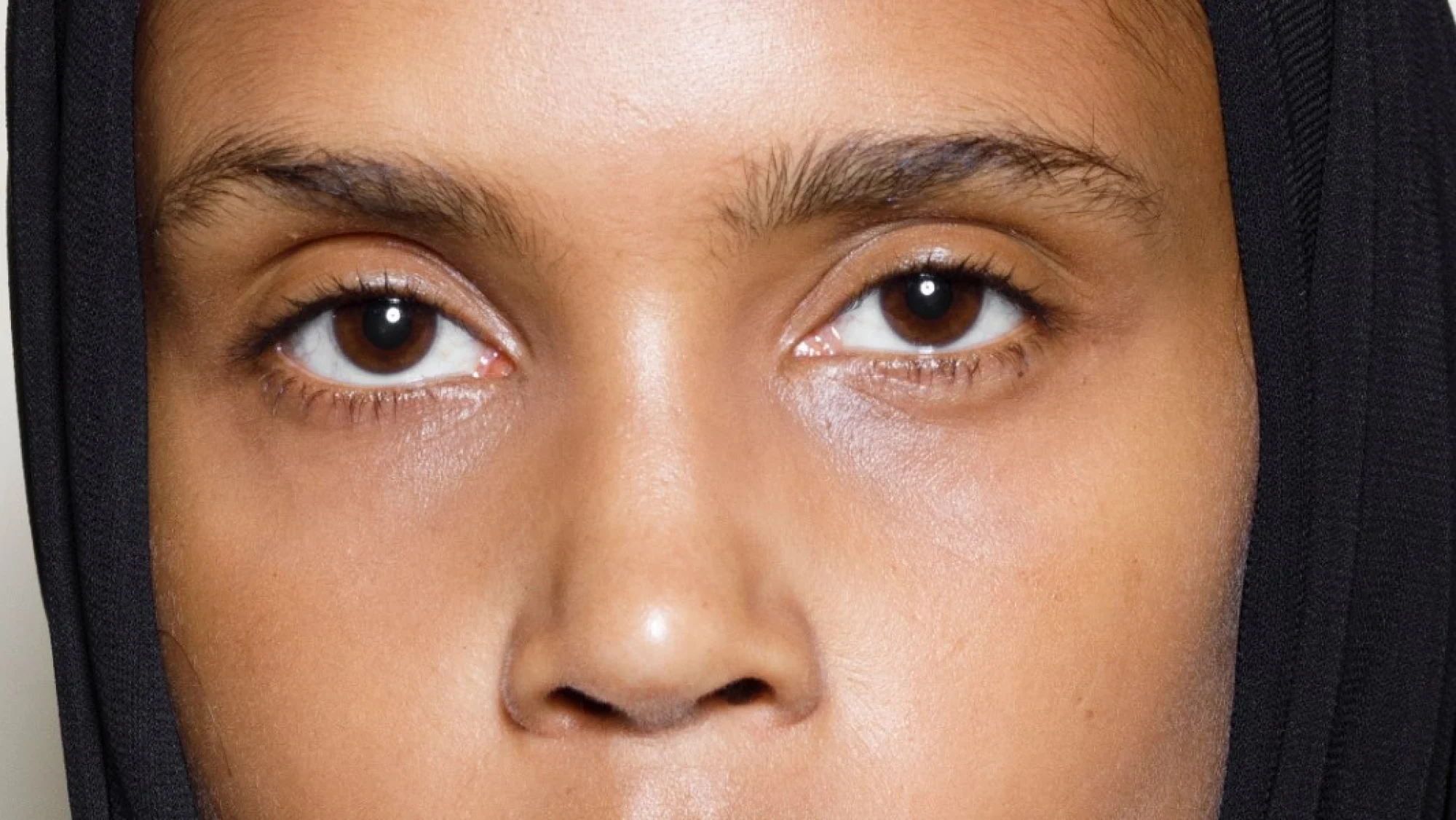Table of Contents
ToggleTexture powder is a popular styling product for adding volume and texture to hair. Many ask: Does Texture Powder Cause Hair Loss? or does hair powder cause hair loss? The answer depends on how you use it, and how often.
By understanding how texture powder works and using it correctly, you can enjoy the benefits of this versatile product without compromising hair health.
How Does Texture Powder Work?
Texture powder is a lightweight, finely milled product designed to enhance volume and grip. Commonly made with silica, it creates friction between hair strands, giving lift and fullness.
What Does Texture Powder Do?
Texture powder absorbs oil and provides hold, making it a staple among hair styling products. You apply it to the roots to get volume without heat tools. Is texture powder bad for hair? Not when used occasionally and washed out properly.
Buildup can clog follicles over time and weaken roots.
Does texture powder work?
Yes—for many people, it gives instant volume without heat tools. But it’s not for daily use or sensitive scalps.
Typically applied to roots with your fingertips, this volume powder is ideal for creating hairstyles that last without weighing hair down. Because it suits various hair types, texture powder has become a go-to styling product.
Benefits of Texture Powder for Styling
- Adds Volume: Ideal for thin or flat hair, lifting roots for a fuller appearance.
- Improves Grip: Perfect for creating updos, braids, or waves with lasting hold.
- Reduces Greasiness: Absorbs oil for a fresh look without washing.
- Non-Sticky Formula: Lightweight and non-greasy, it prevents hair from feeling weighed down.
By choosing the right product and applying it properly, you can enjoy the benefits of texture powder while keeping your hair healthy.
Is Texture Powder Bad for Your Hair?
Can texture powder cause hair loss? Used correctly, no. But daily use or applying it without washing it out can lead to problems like:
Dryness
Product buildup
Fragile roots
Is Hair Powder Bad for your Hair? If you’re applying it too close to the scalp, sleeping with it on, or not cleansing properly, the answer might be yes.
So if you’ve asked, does texture powder damage hair?, the answer depends on how often and how aggressively you use it.
Texture Powder Ingredients and Safety
Many people ask is based texture powder good for daily styling. The answer depends on your scalp sensitivity and how clean the ingredients are.
Understanding the ingredients in texture powder is key to assessing its safety for your hair and scalp. While most products are safe, certain components may irritate sensitive scalps or lead to buildup.
Do Parabens in Texture Powder Cause Hair Loss?
Parabens, used as preservatives in styling products, may disrupt hormones, potentially contributing to hair thinning in susceptible individuals. However, no concrete link exists between parabens in texture powder and hair loss. If concerned, consider paraben-free options to support healthy hair.
Recognizing Paraben Sensitivity in Hair Care
Understanding the signs of paraben sensitivity is essential for maintaining scalp health. Many individuals experience reactions without realizing the cause. Parabens, common in hair care products, can trigger several noticeable symptoms.
Common Signs of Paraben Sensitivity
| Symptom | Description | Suggested Action |
|---|---|---|
| Scalp Itching | Persistent urge to scratch | Switch to paraben-free products |
| Redness | Inflamed, irritated scalp | Consult a dermatologist |
| Flaking | Dandruff-like shedding | Opt for gentle, natural shampoos |
| Hair Thinning | Noticeable hair loss | Seek professional advice |
Skin irritation often accompanies these symptoms. If you notice any of these issues, consider transitioning to paraben-free products. Pay attention to how your scalp reacts to new hair care items, and if symptoms persist, consult a specialist.
“Paraben sensitivity can resemble other scalp conditions, so identifying the root cause is critical for proper treatment.”
Everyone’s skin reacts differently. While one individual might have adverse effects, another may not experience any issues. Monitor your body’s signals and adjust your hair care routine to maintain scalp health.
Does texture powder make you bald? Not directly. But buildup and chronic irritation can speed up hair loss for those already at risk.
If you’re seeing signs of early thinning, it’s worth switching to gentler styling options.
Natural Alternatives to Paraben-Based Texture Powders
As awareness of potential health risks grows, more people are embracing natural hair products. The shift towards paraben-free and chemical-free options ensures healthier hair and scalp.
Organic Texture Powder Choices
Organic texture powders offer a safer alternative to paraben-based products. They rely on natural ingredients like rice starch, cornstarch, or clay to absorb excess oil and add volume without damaging your hair.
Brands like Rahua and Innersense have developed effective paraben-free texture powders, proving that natural products can deliver impressive results.
Is Texture Powder Safe for Your Scalp?
Texture powder is generally safe when used correctly. Misuse, such as not washing it out regularly, can lead to product buildup, clogging follicles, and irritating the scalp. For sensitive scalps, opt for powders formulated with gentle ingredients to maintain scalp health.
Common Chemicals in Texture Powder: Risks and Effects
- Silica: Adds grip but may dry out the scalp with prolonged use.
- Alcohol: Dries quickly but can strip natural oils, causing irritation.
- Fragrances: Synthetic scents may irritate sensitive skin.
- Talc: Ensure it’s asbestos-free to avoid harmful effects.
Choose reputable brands and wash your hair regularly to avoid risks associated with these ingredients.
Hair Damage from Texture Powder
Improper use of texture powder can harm hair and scalp over time. Knowing the potential risks ensures you can style your hair safely. So does texture powder damage your hair? Yes, if it causes buildup, dryness, or irritation.
Can Texture Powder Damage Hair Follicles?
As previously mentioned, texture powder doesn’t directly damage hair follicles but can lead to issues if buildup clogs them. Regular washing removes residue, promoting healthy hair growth and preventing follicle-related problems like folliculitis.
Does Texture Powder Irritate Your Scalp?
Ingredients like alcohol or fragrances may cause irritation, particularly for those with sensitive skin. Signs include redness, itchiness, or flakiness. Switching to dermatologist-recommended products can alleviate these symptoms and maintain scalp health.
Feel free to check out our related articles:
Safe Application of Texture Powder
- Sprinkle a small amount onto roots or fingertips.
- Gently massage into the scalp for even distribution.
- Avoid overusing the product to prevent buildup.
These steps ensure optimal results while protecting your scalp and hair.
Choosing Hair-Friendly Products
Look for:
- Natural Ingredients: Avoid parabens, sulfates, and harsh chemicals.
- Lightweight Formulas: Prevent buildup and irritation.
- Dermatologist Recommendations: Products suitable for sensitive scalps.
Prioritize quality for long-term benefits and healthier hair.
Solutions for Hair Loss and Scalp Care
If you experience hair loss or scalp discomfort, addressing the issue early is key to restoring hair health.
When to Seek Professional Help for Hair Loss
Persistent hair thinning, excessive shedding, or scalp discomfort may require a professional hair restoration evaluation. Experts can identify underlying causes, such as hormonal imbalances or product misuse, and recommend effective treatments.
Advanced Hair Restoration Techniques at Kopelman Hair
At Kopelman Hair, we offer advanced solutions for hair loss, including:
- Follicular Unit Extraction (FUE): Natural, minimally invasive hair restoration.
- Platelet-Rich Plasma (PRP) Therapy: Stimulates growth by enhancing follicle health.
- Custom Hair Restoration Plans: Tailored to meet your specific needs.
Our expertise ensures you regain confidence with healthy hair. Schedule a consultation to explore your options.
For those dealing with hair thinning or similar concerns. Consider speaking with Dr. Kopelman. This father-son team has more than 35 years of experience in hair restoration.
They focus on personalized treatments for every client. Dr. Kopelman’s expertise can help you find the right solution tailored to your unique needs. Schedule a consultation today to explore your options and take the first step towards achieving your hair goals.
Is Texture Powder Bad for Your Hair FAQs
Is Styling Powder Bad for Your Hair?
Styling powder is not bad for your hair when used in moderation. Overuse can lead to dryness, brittleness, and buildup, affecting hair health. Pairing it with deep conditioning treatments can counteract these effects and keep hair feeling soft.
Can Talc Powder Cause Hair Loss?
Talc in hair styling powder is generally safe if asbestos-free. Low-quality talc or poor scalp hygiene may lead to irritation and blocked follicles, potentially impacting hair growth. Always choose high-quality products and maintain good scalp care.
Is Hair Powder Bad for Your Lungs?
Inhalation of fine powder particles can irritate the respiratory system. Apply styling powder in well-ventilated areas and avoid breathing it in directly to minimize risks.
Does Hair Color Powder Cause Hair Loss?
Hair color powder, similar to texture powder, doesn’t inherently cause hair loss. However, buildup from frequent use can weaken the scalp’s health. Opt for gentle products and practice proper hair care to avoid damage.
Can I Use Hair Powder Every Day?
Daily use is not recommended due to potential buildup. Opt for lightweight formulas and wash your hair regularly to maintain a healthy balance. Incorporating hair care routines, like deep conditioning treatments, can also support overall hair health.


